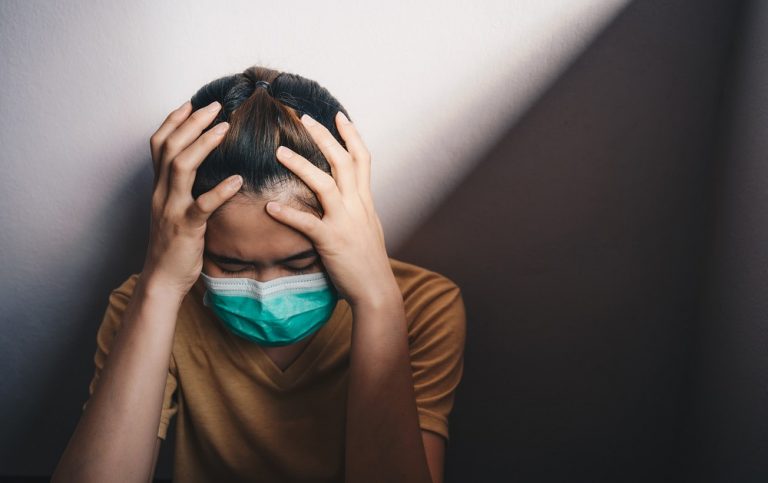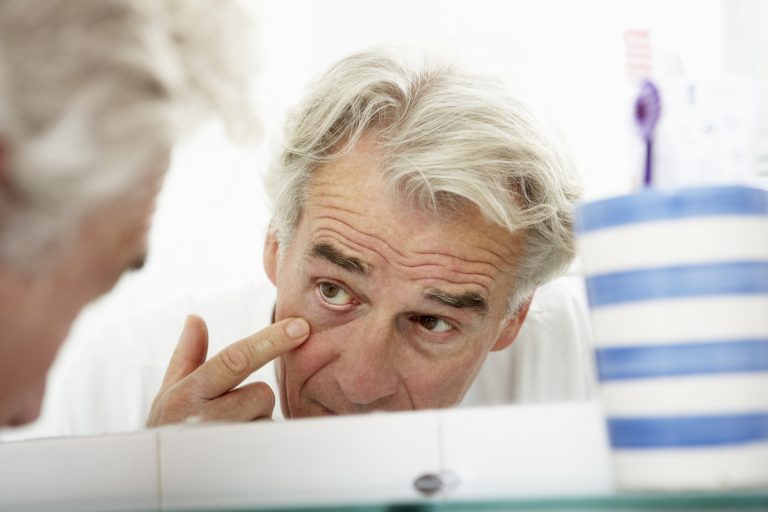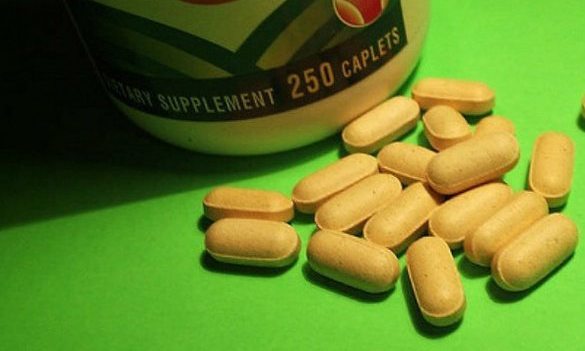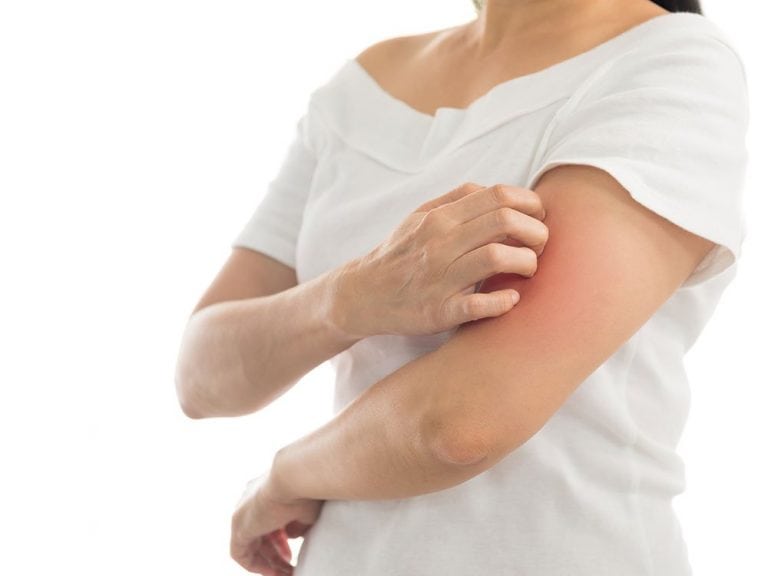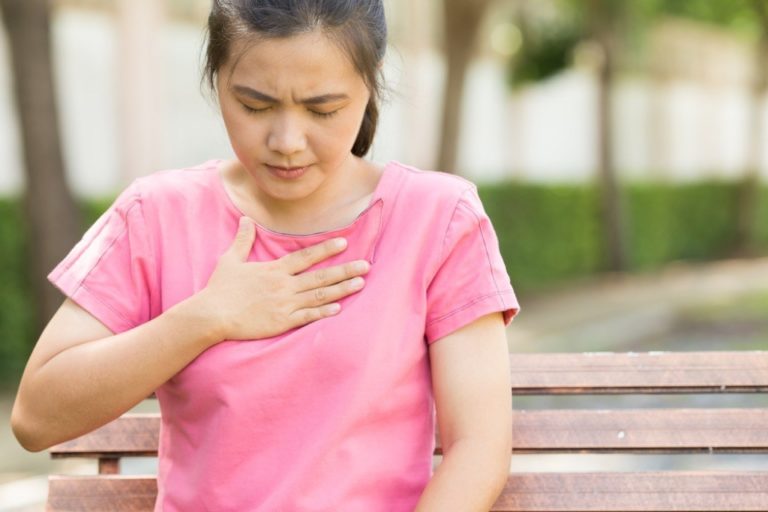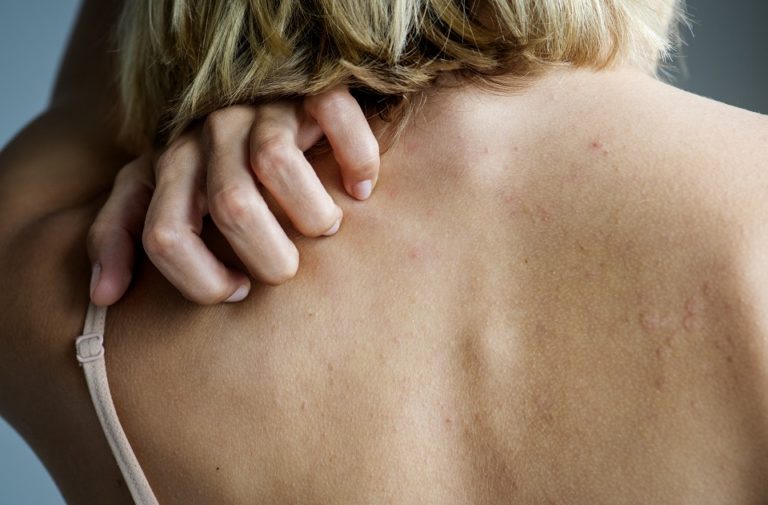
If you’re prone to sunburn, you’re not alone. A 2018 study published in JAMA Dermatology reveals that nearly a third of U.S. adults get sunburned each year. And while there are countless SPF products on the shelves of every drugstore and innumerable warnings from regulatory agencies and doctors alike about the dangers of ultraviolet (UV) exposure, the number of people experiencing sunburns hasn’t gone down significantly in years. According to the National Cancer Institute, more than 33,000 sunburns are reported annually that require emergency room visits.
So what makes sunburns so harmful exactly? And why do some people peel or blister from a particularly bad burn? Read on to find out what happens to your body when you get a sunburn. It’s the perfect incentive to slap on some SPF before your next trip to the beach.
Your skin absorbs the ultraviolet rays.
From the moment your skin is exposed to UV rays, you’ll likely notice how warm it feels. This happens, in essence, because your skin is absorbing and converting those UV rays into heat. Melanin, the molecule that provides your skin with its pigmentation, is responsible for this. When you’re exposed to ultraviolet rays, melanin distributes itself under your skin to prevent against potential tissue damage. If you have a lighter complexion, your skin is getting more damage when you’re exposed to UV rays than someone with darker coloring because you lack melanin.
According to the American Cancer Society, people with fair skin and light-colored hair (like blonde and red) are more likely to get a sunburn and freckles (which signify sun damage) due to their skin’s lack of protective melanin. That said, no matter what shade your skin is, you still need SPF when you’re outdoors.
Your immune system kicks into high gear.
When your body first recognizes that your skin’s cells are in danger, your immune system kicks into high gear, attracting inflammatory cells to the area to repair the damage from the sunburn. This immune response is also behind the pain and sensitivity that go along with a bad sunburn, according to a 2012 report from experts at the University of California, San Diego. According to the researchers, the body’s inflammatory response to sun damage helps kill off some of the damaged cells likely to become cancerous.
Your outer layer of skin is instantly damaged.
Upon UV exposure, the DNA cells in the outer layer of your skin, the epidermis, become instantly damaged. Then, it’s the job of the basal cells—the innermost layer of your skin—to crank out melanin to provide added protection, both while you’re getting a burn and afterward. This explains why your sunburn sometimes fades into a tan—the increased production of melanin makes your skin darker.
As far as the outermost layer of your skin goes, the DNA- and heat-damaged epidermal cells then begin apoptosis, or programmed cell death. In 2005, researchers at the Catholic University of Leuven in Belgium discovered that chronic ultraviolet exposure could lead to problems in the body’s ability to regulate this process, sending the wrong signals about which cells to terminate and which to repair—ultimately leading to a greater risk of skin cancer developing among the damaged cells that remain.
Your blood vessels bring healthy blood to the affected area.
After the outer layer of your skin is damaged, your blood vessels dilate in an effort to increase the amount of healthy, oxygenated blood being brought to the area of the burn to aid in the healing process. And, according to the University of Texas MD Anderson Cancer Center, this release of oxygenated blood in the afflicted area is why your sunburn is red in color.
Your body’s pain receptors activate—and make you itchy.
Once the top layer of your skin is damaged, “pain receptors activate and mast cell activation causes itching of the skin,” explains Caroline Chang, M.D., a cosmetic and medical dermatologist and clinical assistant professor of Dermatology at Brown University in Rhode Island.
Your skin blisters to heal more severe damage.
If you suffer a particularly bad burn, your skin may develop fluid-filled blisters. These blisters, which typically appear between six and 24 hours after a burn, signify deeper damage done to the cells in the underlying dermis of your skin. The blisters are filled with the plasma formed between the layers of the epidermis and dermis. They’re a shield created by your body in order to ensure that no external irritants impede the healing of your sunburnt skin.
Unfortunately, these blisters could mean bad news for the overall well-being of your body, according to Chang. “If blistering occurs, you can develop scarring and also have a higher risk of developing an infection,” she says. “Massive blistering can also lead to fluid loss and electrolyte imbalances and may require treatment with a burn unit.”
To avoid making a bad situation worse, refrain from touching the blisters or popping them, as this may increase your risk of an infection.
Your skin peels to replace the old, damaged cells.
You’ll likely find that your sunburn causes your skin to peel. This means that your body is attempting to replace the areas of your skin that suffered sun damage with healthy skin, according to The Skin Cancer Foundation. Damage from the sun accelerates the skin’s typical 28-day process of regeneration and shedding, meaning that, following a sunburn, the top layer of skin is thinner and weaker than it would normally be, which accounts for the ease with which your skin peels following a burn.
You may develop skin cancer a decade or two later.
In addition to accelerating the aging process, repeated sunburns can make you more susceptible to developing skin cancers, like basal cell carcinoma, squamous cell carcinoma, and malignant melanoma. And unfortunately, just because your burn has come and gone doesn’t mean you’re in the clear. “Skin cancers often develop around 10 to 20 years after a period of intense sun exposure,” says Chang.
So, whether you’re heading to the beach or just going out for a walk, make sure to slather on some sunscreen first—your future self will thank you.






